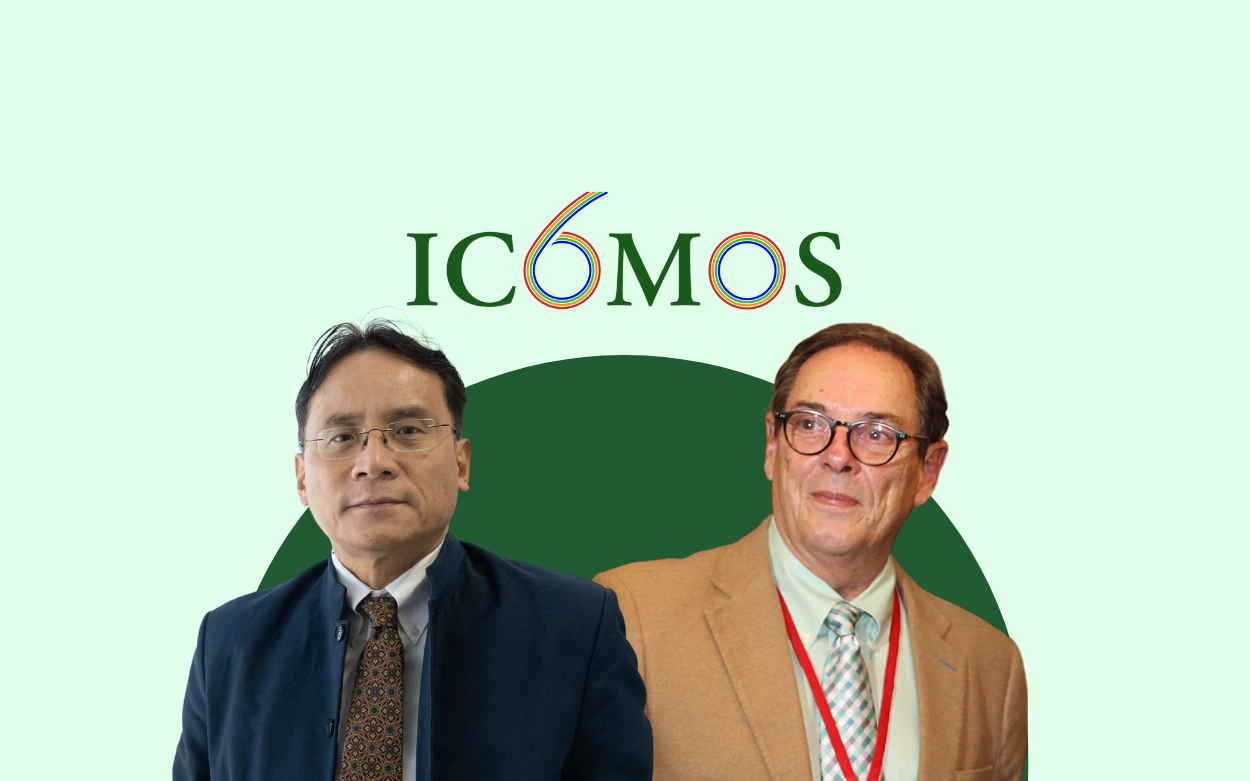ICOMOS at Sixty: A Shared Reflection by Toshiyuki Kono and Gustavo Araoz

After 60 years of activity, ICOMOS has proven that it has many qualities worth celebrating. As the two former presidents, we would like to draw specific attention to three main aspects that make ICOMOS exceptional, and that are the result of great efforts throughout the decades.
UNIVERSALITY
Towards a global perspective
The first aspect is the universality of ICOMOS, which has made its authority applicable and relevant to all cultural contexts. This has not always been the case – just as Rome was not built in one day, ICOMOS was born out of a century and a half of complex and often contradictory efforts to come up with the best ways to preserve the cultural heritage of Europe and European derived societies. This Eurocentric nature made perfect sense due to the absence of non-European heritage management traditions in international discussions. However, through the global acceptance of the World Heritage Convention during the 1980s and 1990s, the need to reconfigure the concepts of heritage to fit the traditions of non-European cultures emerged. ICOMOS members were deeply involved within initiatives based on the Nara Document and the Burra Charter’s principles. ICOMOS, also institutionally, has proactively reacted to the demand to transform itself from Eurocentrism to universality. Such efforts have not halted until today. As a result, ICOMOS has recently gained new National Committees in underrepresented parts of the World, such as Africa.
Driving progress in cultural heritage expertise
The second trait that we wish to underscore is the way ICOMOS allows its members to use their knowledge, expertise and concerns to delve ever deeper into the nature of heritage and to improve its conservation. This bottom-up approach, since the founding of ICOMOS, has contributed to a constantly expanding hub of networks as evidenced by the variety of its National Committees (NCs), International Scientific Committees (ISCs) and Working Groups (WGs). The recent establishment of the ISC for Space Heritage can be mentioned as an example of this endeavor. Furthermore, intellectual efforts to discover new concepts like the Heritage Ecosystems open new ways for heritage communities to move forward in a complex world with many uncertainties.
INTERGENERATIONAL COOPERATION
Finally, we wish to celebrate the manner in which ICOMOS continues to develop by building on its past accomplishments and integrating them in the way we shape the future of conservation. The experience of our hundreds of senior members and former leaders continues to fuel the needs of our younger members in building an even brighter future. Younger members have a platform for global outreach since the establishment of the Emerging Professionals Working Group (EPWG) in 2017. As the founders of the ICOMOS Academy* and EPWG, we would like to encourage a more robust intergenerational cooperation that wisely uses the many resources available to ICOMOS. Combining institutional memories and innovative ideas will make the organisation stronger and prosperous.
*Group made up of ICOMOS Honorary Presidents, former Board members and Advisory Committee officers.